30 Evidence-Based Benefits of Cinnamon
If you’re looking to get healthier, there is one spice you definitely need in your pantry — cinnamon!
Here are thirty science-backed health benefits of cinnamon.
Health Benefits of Cinnamon
Now that you know the best ways to consume cinnamon, here are thirty cinnamon health benefits you can receive by adding at least one teaspoon of cinnamon to your daily diet.

Cinnamon and Type 2 Diabetes
Those living with type 2 diabetes may want to add a daily dose of cinnamon to their healthy diet.
Several studies suggest that Ceylon cinnamon can be great for those with insulin resistance because it may help certain individuals control their blood sugar (5).
Talk to your doctor, though, before raising your intake of cinnamon or using cinnamon supplements for your type 2 diabetes.
Another study suggests that, because of natural benefits of cinnamon powder, there’s an effect on blood sugar, lowering the body’s insulin resistance it may also be ideal for those who are categorized as being prediabetic.(6)

Fights Free Radicals
Cinnamon is full of healthy antioxidants, which can help protect and heal your body from various ailments.
For example, the body produces what are called free radicals, which are small molecules that arise when atoms are paired with unpaired electrons.
When this happens, free radicals start damaging other areas of the body, such as DNA and cause cell deterioration.
If your body has enough antioxidants available, they will react safely with free radicals and prevent any cell damage to the body (8).
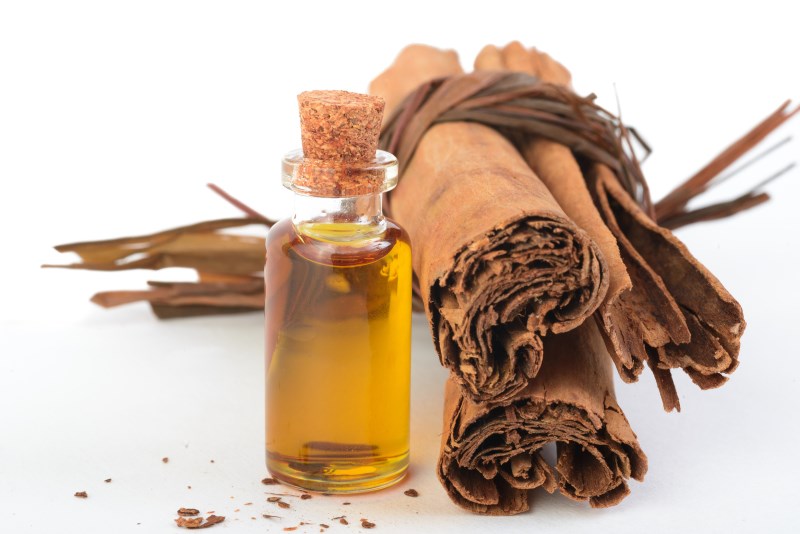
Lowers Bad Cholesterol
There is still much debate about cinnamon’s effects on cholesterol, or more specifically, the bad cholesterol.
One study done on the effects of cinnamon on triglycerides indicated a 23% to 30% reduction in triglycerides in patients and up to a 27% reduction in LDL cholesterol.
What’s more, patients actually saw a spike in HDL-C, or “good cholesterol.” (9)
Those who do not suffer from diabetes can also benefit from cinnamon’s possible effect on cholesterol.
Research suggests that cinnamon may also have a positive effect on lowering fasting blood glucose, reducing triglycerides, improving serum glucose, and improving both good and bad cholesterol. (10, 46, 47)

Provides Bone Health
Cinnamon offers many benefits for your teeth.
Bacteria are important in the buildup of plaque on the teeth, which can lead to gum disease.
And what does cinnamon do?
Since cinnamon is rich in antibacterial properties, this health benefit of cinnamon is useful for keeping your mouth free of harmful bacteria that may damage your teeth.
Cinnamon also strengthens your bones, including your teeth. (11)
Have a toothache? Cinnamon may ease tooth pain until you can see a dentist.
Clean your aching tooth through brushing and then wipe it dry with a cotton swab.
Apply two drops of cinnamon oil to the aching tooth and any teeth directly surrounding it.
This cinnamon remedy should ease pain caused by tooth decay. (12)
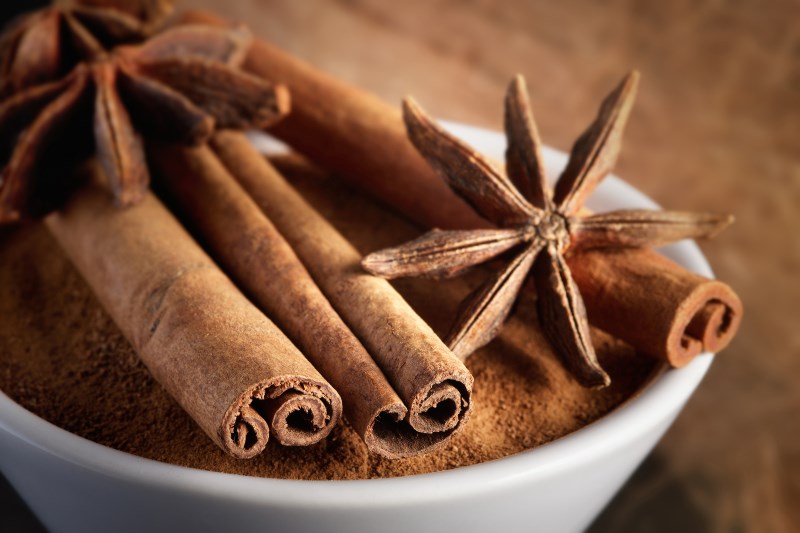
Antibacterial and Antimicrobial Properties
Cinnamon has antimicrobial properties.
It’s difficult to overestimate the importance of cinnamon in fighting bacteria and microbes.
Harmful microbes include bacteria, fungi, parasites, and viruses and can cause decay or make you extremely ill.
Some microbes may even cause disease.
Cinnamon will combat bad microbes and keep your body healthy.
Cinnamon bark contains strong antibacterial properties. (13)
Ingest cinnamon in powdered form or through a cinnamon capsule to gain antibacterial cinnamon benefits for the body.
Such benefits aside, cinnamon can also be used as a green cleaning ingredient and natural disinfectant.
Avoid household cleaning products that contain harsh chemicals.
Instead, mix cinnamon in a spray bottle with some warm water, and use it to disinfect your kitchen, bathroom, doorknobs, countertops, or patio furniture. (14)

Attention-Deficit Hyperactivity Disorder (ADHD)
Symptoms of ADHD include becoming easily distracted, daydreaming, difficulty sitting for a long period of time, difficulty keeping organized, forgetfulness, general inattention, fidgeting or unable to keep still, excessive talking, impatience, anxiety, procrastination, and difficulty concentrating.
These symptoms can affect both children and adults.
Cinnamon is being used more and more as a homeopathic treatment for ADHD.
In a study regarding the effects of aromatherapy on children with ADHD, results indicated that cinnamon may help calm those suffering from ADHD.
Antioxidants and blood sugar control are just a few other benefits of eating cinnamon for those with ADHD.

Helps Treat Parkinson’s Disease
Parkinson’s disease is a neurodegenerative disease.
With a slow progression at first, symptoms include involuntary movements, tremors, shaking, changes or loss of automatic speech, rigid or stiff muscles throughout the body, slowed speech or movement, decreased blinking, lightheadedness, and more.
While the exact cause of Parkinson’s disease is not known, some studies indicate that cinnamon may be used to reverse anatomical and biomechanical cellular changes.
This study was done on mice affected by Parkinson’s disease and presents an exciting potential for Parkinson’s disease research. (16, 17)

Cinnamon and Weight Loss
The best results for weight loss and maintenance will always be a healthy diet and daily exercise, but cinnamon can also be helpful for weight loss and maintenance.
What does cinnamon do for your body?
It decreases blood sugar, which is important for losing weight.
Health benefits of cinnamon include controlling insulin levels, which aid in speeding up the metabolism.
When your metabolism level is high, it will be able to store healthy carbohydrates for energy without turning them into fat.
A boosted metabolism will also allow you to burn more calories in a shorter amount of time.
Cinnamon is often used in detox drinks because of its natural appetite suppression qualities.
This reaction in the body will help you feel fuller for a longer period of time and help you avoid unnecessary snacking throughout the day. (18)
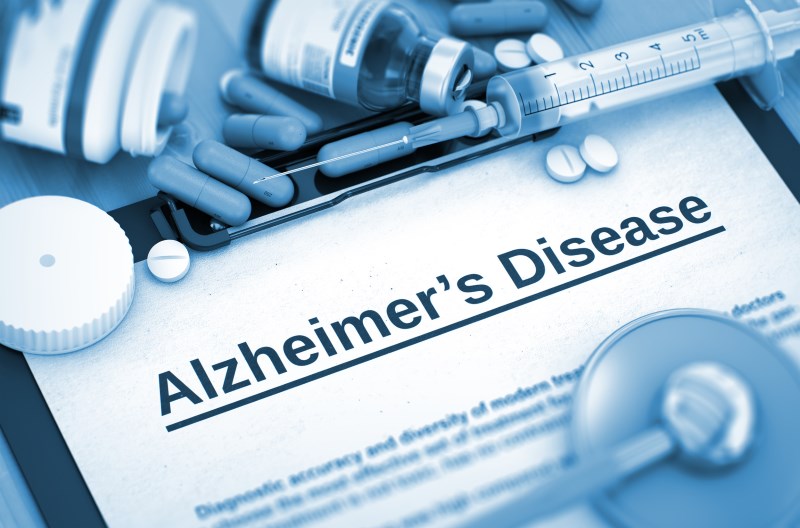
Treats Symptoms of Alzheimer’s
Alzheimer’s disease has no known cure, but its symptoms can be treated in many ways.
These treatments can increase the quality of life in patients.
One such treatment involves cinnamon.
Its health benefits have been shown to improve general motor function and aid neurons.
While cinnamon is not a cure for Alzheimer’s, it can help treat the symptoms and ease impairment, making daily routines easier to follow at the onset of the disease. (19)
One study shows that cinnamon inhibits tau aggregation, which is a distinctive characteristic of Alzheimer’s disease. (20)

Cinnamon for the Common Cold
Want to stop the common cold in its tracks?
While it is often thought that there is no cure for the common cold, you can stop its symptoms from worsening.
Within the first twenty minutes of common cold symptoms, such as a sore throat, coughing, or sniffing, treat it with strong cinnamon tea.
Cinnamon contains healthy antioxidants and antibacterial properties that can fight harmful bacteria, improve blood flow and blood oxygen levels, and create a pleasant warming sensation in the body.
Say goodbye to common cold symptoms and hello to cinnamon. (21)
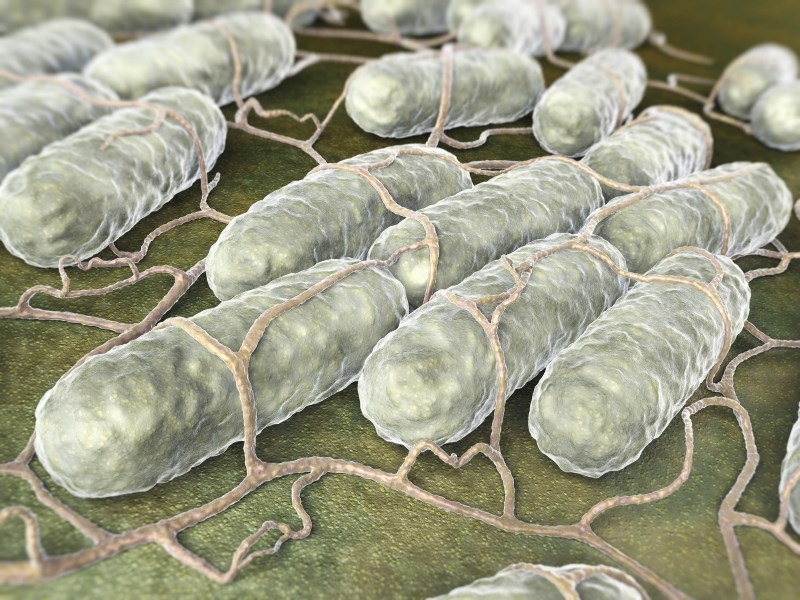
Fights Against Salmonella
Fight salmonella with all-natural cinnamon oil.
Salmonella is a bacterial infection that inflames the intestines.
Commonly referred to as “food poisoning,” salmonella occurs after eating raw eggs, raw meats, and seafood and when ingesting improperly washed fruits or vegetables.
Symptoms include diarrhea, cramping, and fever.
Because cinnamon contains antibacterial properties, it’s a perfect combatant of infectious salmonella. (22)

Boosts Your Sex Drive
Cinnamon is a great option for those who love using aphrodisiacs to get into the mood.
Aphrodisiacs have been used for centuries to stimulate sexual desire and heighten the senses. (23)
While some say it’s merely a mind over matter placebo effect, others find that eating hot foods, such as chilies or spicy hot cinnamon, can strengthen body heat and incite sexual passion.
One study involving cassia bark was used on rats to study whether or not it affected their libido.
The result was a significant increase in sexual function. (25)
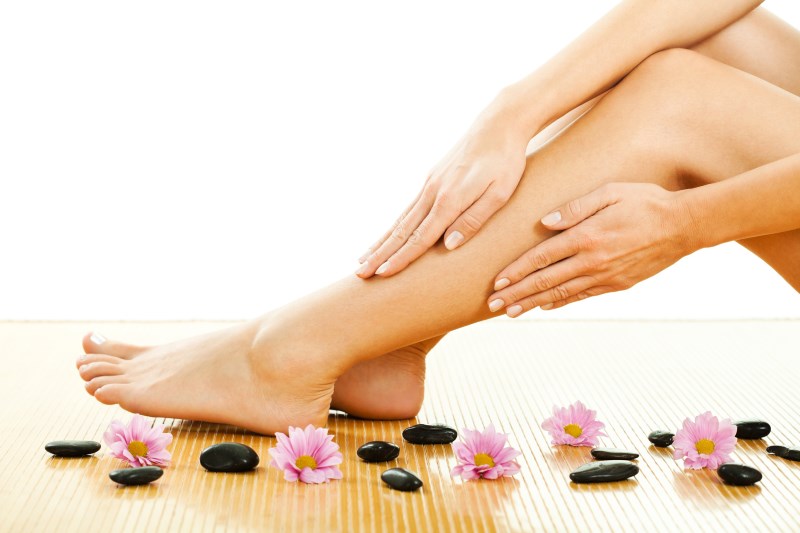
Cinnamon for Your Skin
If you haven’t thought to use cinnamon in your beauty routine, now is the time to start.
When used cosmetically, cinnamon will bring blood to the surface of the skin with a “burning” sensation and make the skin appear plump and supple.
Cinnamon promotes collagen production, which can make the skin appear younger and firmer. (26)
Because of its antibacterial properties, cinnamon is becoming a fast favorite in treating acne, eczema, and can even be used in a homemade facial scrub.
Cinnamon is also good for exfoliating the skin and scalp and will make it feel nourished and clean.

Anti-inflammatory Properties
Inflammation is often the body’s natural reaction to pain.
Even though this is a necessary bodily response, it can still be painful. Inflammation may be chronic or acute.
Cinnamon contains a natural anti-inflammatory property, making it a perfect herbal remedy for pain and swelling.
Using cinnamon to ease inflammation may help reduce the risk of developing heart disease, issues with the lungs, certain cancers, and diabetes.
Use cinnamon to combat inflammation through cinnamon capsules or by sprinkling a teaspoon of it into a smoothie, oatmeal, or in your coffee. (27)

Combats Premenstrual Syndrome (PMS)
Cinnamon has been used to ease stomach issues, such as cramps, for decades.
Women who suffer from PMS and the cramping that comes along with it may benefit from the fiber, manganese, and calcium found in cinnamon.
Dull, throbbing cramps associated with menstruation are caused by contraction of the uterus.
Cinnamon contains key anti-inflammatory and antispasmodic properties that ease pain associated with PMS.
One study used cinnamon to combat premenstrual pain and found the severity of this pain was reduced significantly in the subjects. (28)

Helps Fight Polycystic Ovarian Syndrome (PCOS)
The benefits of cinnamon have been helpful in trials for women who live with PCOS, which is a condition where women develop small cysts on their ovaries.
These cysts are mostly benign and are caused by a hormone imbalance of estrogen and progesterone.
Symptoms of PCOS include excess hair on the body, thin hair, weight gain or difficulty losing weight, infertility, breast size decrease, pain in the pelvic region, and acne.
While cinnamon cannot eliminate PCOS, it can help manage the syndrome.
In more than thirty-three studies regarding herbal medicine for PCOS, there was sufficient evidence that cinnamon aided in improved metabolic hormone profiles, ovulation regulation, and improved fertility in patients. (29)

Helps Manage Yeast Infections
Fight off yeast infections with cinnamon.
Yeast infections result when there is an overgrowth of fungus, or “yeast.”
The most common type of yeast infection is Candida strains.
While yeast infections commonly occur in the vagina, a buildup of yeast can happen anywhere on the body, such as under the breasts, under the knee, or around the testicles.
Cinnamon contains antifungal mechanisms, making it the perfect fighter against candida yeast infections.
One study found that cinnamon oil was a particularly effective essential oil treatment against candida yeast infections. (30)

Insect Repellent
Cinnamon may smell pleasant to you, but mosquitoes certainly don’t share your taste.
One study suggests that pleasant-smelling cinnamon oil is a greener way to repel and repel mosquitoes and kill their hatchlings. (31)
In this study, cinnamon oil was shown to kill mosquito larvae and may also repel adult mosquitos.
Avoid the potentially harmful insecticides and go green with the environmentally friendly cinnamon insect repellent.
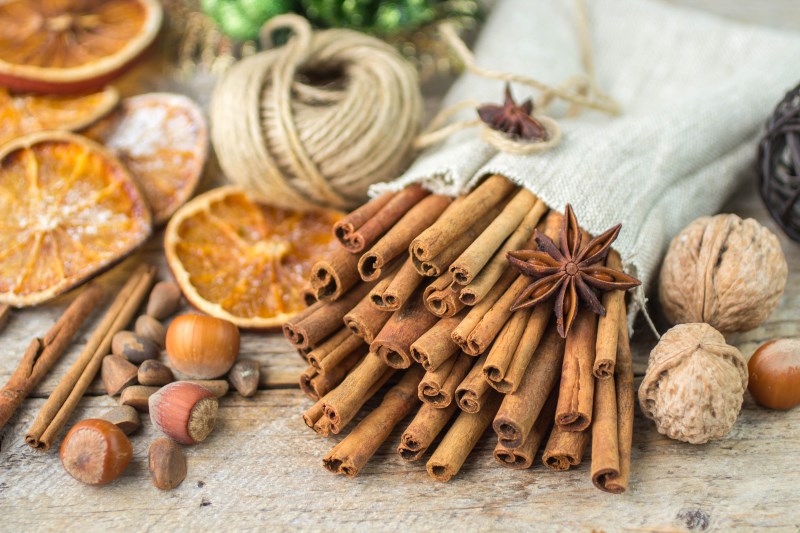
Combats Neurodegenerative Diseases
Besides Parkinson’s disease, cinnamon may also help combat symptoms of other neurodegenerative diseases, such as HIV-related cognitive impairment, vascular dementia, and frontotemporal dementia.
One study published in the Journal of Neuroimmune Pharmacology tested cinnamon’s effectiveness on mice affected by a neurodegenerative disease.
The study found that the natural ingestion of cinnamon had positive effects on such diseases as multiple sclerosis due to its anti-inflammatory properties.
The results also showed improved motor function as well as anatomical and physical symptom improvements.
Researchers hope to continue studies on cinnamon’s effects on neurodegenerative disease advancement. (32)

Warming Agent
Ready for a relaxing massage?
Cinnamon can easily be used as a warming agent because of its natural spicy aroma, which can be particularly soothing when using cinnamon oil or bark oil during a massage.
When used, this oil will warm the skin and act as a mild muscle relaxant.
This oil is also soothing for those suffering from chills or flu.
Be sure to dilute the cinnamon or bark oil with water before use to avoid irritating the skin.
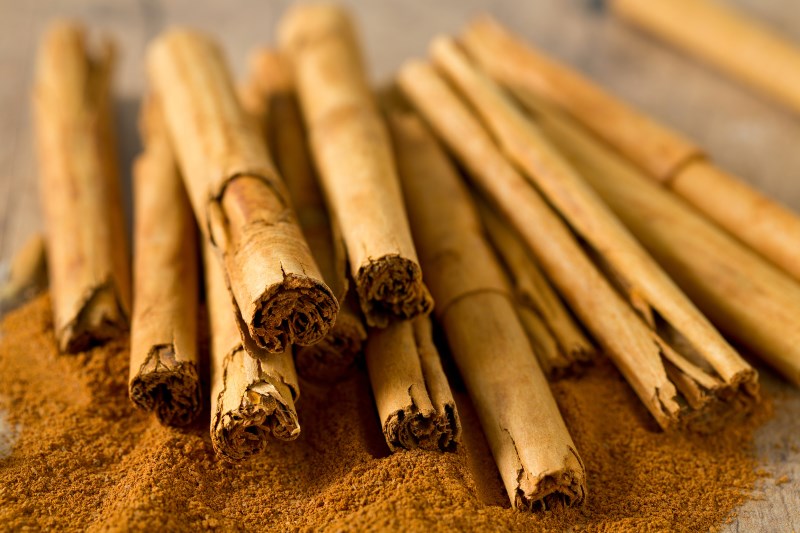
Fighting HIV with Cinnamon
Cinnamon may also be used to treat HIV.
One study suggests that cinnamon can block type-1 HIV from infecting cells in the body and prevent HIV from developing into AIDS.
Cinnamon should not be used as a single treatment for HIV but should be used alongside other medical treatments. (33,34)

Battles Stomach Flu
Medically referred to as gastroenteritis, stomach flu is caused by bacteria and viruses.
This virus centers around the gastrointestinal tract, often resulting in upset stomach, vomiting, and diarrhea, on top of other flu-like symptoms, such as nausea, dehydration, and fever.
Cinnamon can be an effective agent against the stomach flu, combating viruses with its antibacterial properties.
Cinnamon powder benefits work quickly to help relieve nausea and reduce bloating.
Cinnamon can also act as a warming agent, causing a soothing effect on those suffering from colds and flu.

Fights Against Heart Disease
Cinnamon is a great way to help prevent heart disease and maintain cardiovascular health.
Cinnamon is a natural anti-inflammatory and anticlotting tool.
The fiber and calcium found in cinnamon aids in removing toxins from the body.
Furthermore, reducing high cholesterol can help prevent heart disease from developing in the future.
Use cinnamon in your journey to heart health by adding cinnamon to your breakfasts, sprinkle a teaspoon of cinnamon in your coffee or herbal tea, or simmer a cinnamon stick in savory dishes. (35)
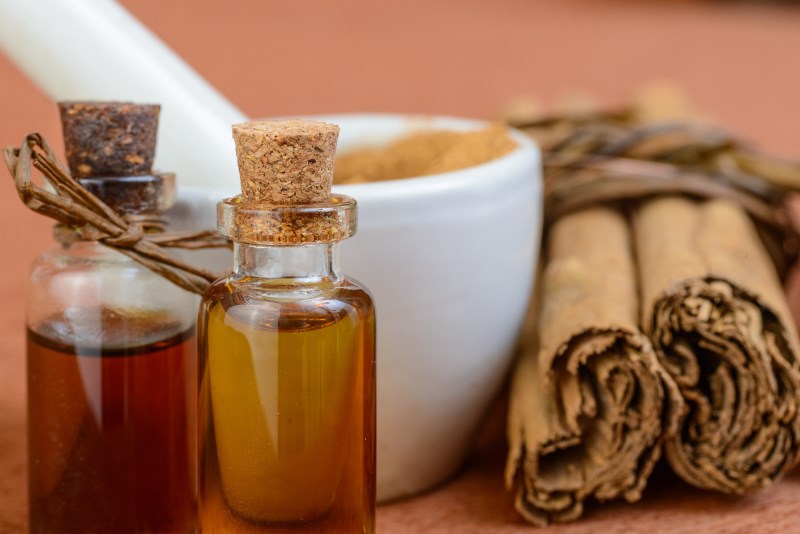
Eases Irritable Bowel Syndrome (IBS)
IBS is a disorder involving the large intestine.
Symptoms of IBS are often painful and can be debilitating in some patients.
Symptoms include bloating, pain in the stomach, inconsistent bowel movements, gas, constipation, and diarrhea.
Cinnamon can help ease symptoms and pain associated with IBS, particularly with bloating.
Cinnamon can remove harmful bacteria in the intestines and may clear the GI tract from infections.
The removal of bacteria from the intestines can encourage the smooth use of the gastrointestinal tract. (36)

Can Improve Your Mood
Have you ever driven under duress?
No matter what your emotional state in life, cinnamon may be the mood enhancer you’ve been looking for.
One study found that the scent of cinnamon alone was enough to reduce irritability in drivers. (37)
Use cinnamon to combat depression and enhance your mood by using cinnamon candles, air fresheners, and using cinnamon in foods on a daily basis.
Its antibacterial properties can also remove harmful strains of gut bacteria that may also cause depression.
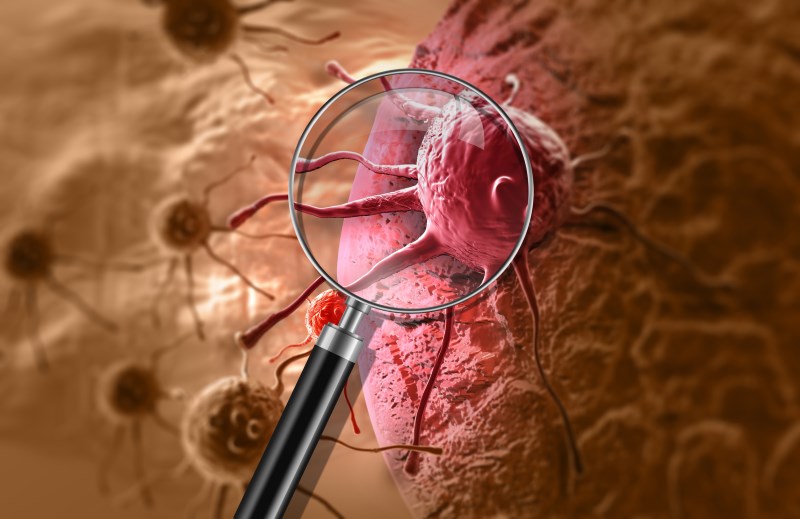
Helps Fighting Cancer
Though currently limited to animal studies, cinnamon is thought to have anticarcinogenic effects.
Promising research shows that cinnamon oil may be effective in treating gastric cancers, melanoma, leukemia, lymphoma, and various tumors. (38)
Cinnamon can also help control and maintain healthy blood sugar levels, effectively starving the cancer cells of the sugar that they need to live.
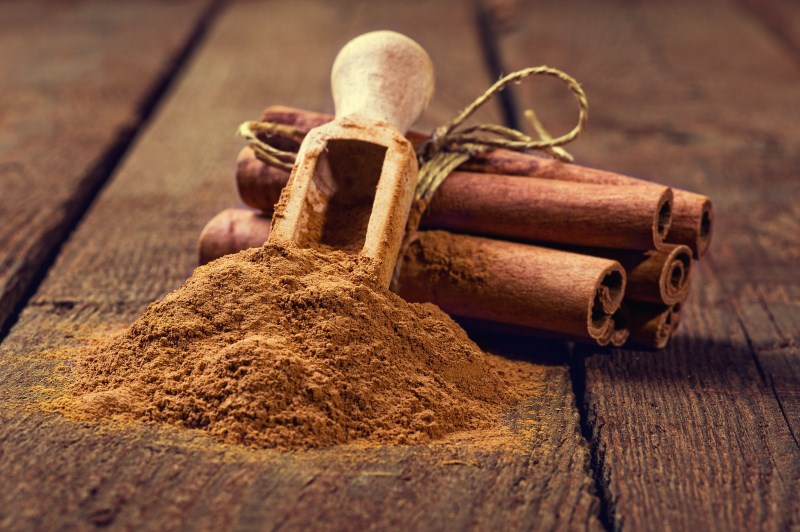
Antifungal Properties
Cinnamon leaf oil contains eugenol, which contains strong antifungal properties.
Candida, the same fungus responsible for yeast infections, can also infect toenails and cause other rashes and fungus-related infections.
Within seven days, you will be able to see anti-fungal results from applying cinnamon oil. (39)
In one study where patients suffered from intestinal fungus and antibiotics had not been successful in getting rid of the infection, cinnamon oil was used.
After two weeks, 72% of patients were completely flushed of their infections and all traces of candida fungus.
The other patients saw a drastic reduction of the fungus and were all on the road to healing. (40)
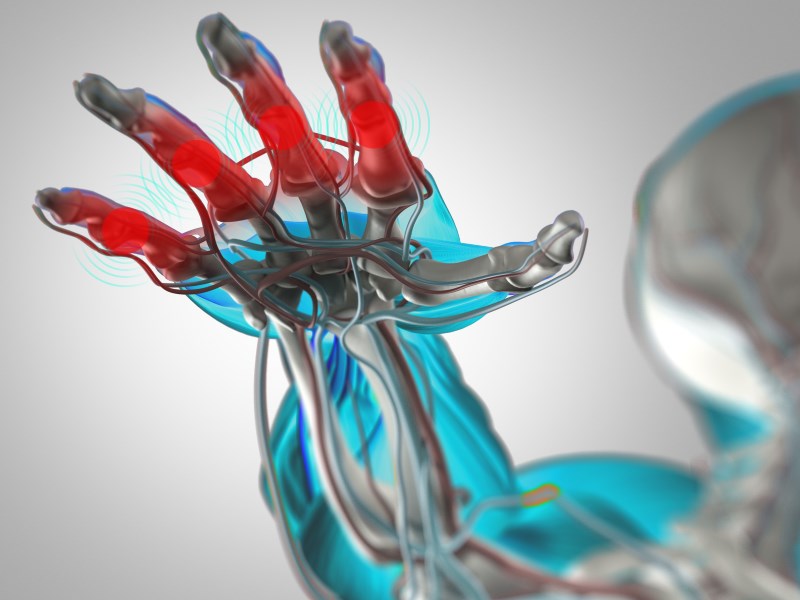
Helps with Arthritis
Arthritis is severe inflammation of the joints, causing pain, redness, and reduced motion.
While medications are available to help treat arthritis, these can have negative side effects, such as kidney damage and internal bleeding.
For those seeking a safer, more natural approach, benefit of cinnamon to fight pain is the way to go.
Cinnamon has long been used as an all-natural relief of arthritis pain because of its natural anti-inflammatory properties.
Not only does cinnamon ease inflammations and therefore reduce pain, but cinnamon properties also help to slow the aging process of cells that could potentially lead to painful inflammations.

Natural Preservative
Regarding the shelf life of your foods, you may not think of cinnamon as a preserving agent, but you should!
Because of the antifungal activity found in cinnamon, its essential oil can actually be used as a natural preservative of foods.
Cinnamon also inhibits the growth of bacteria, yeast, and mold that would otherwise break down foods.
Some even suggest that foods that contain cinnamon could even extend their shelf life without ever being refrigerated. (41, 42, 43)

Helps Fighting Bad Odors
Cinnamon has a spicy, sweet aroma that is reminiscent of sweet pies, fall mornings, and scented candles, but it can also be used to make the breath smell pleasant.
Cinnamon contains antibacterial properties that kill bacteria in the mouth and leave breath smelling fresh.
Cinnamon is a natural odor neutralizer for both your home and your body.
You can have fresher breath and combat bacteria in the mouth by simply snacking on a cinnamon stick or using a cinnamon-based mouthwash.
Mix lemon juice, honey, and cinnamon spice together to create a homemade mouthwash to combat bad breath and halitosis.
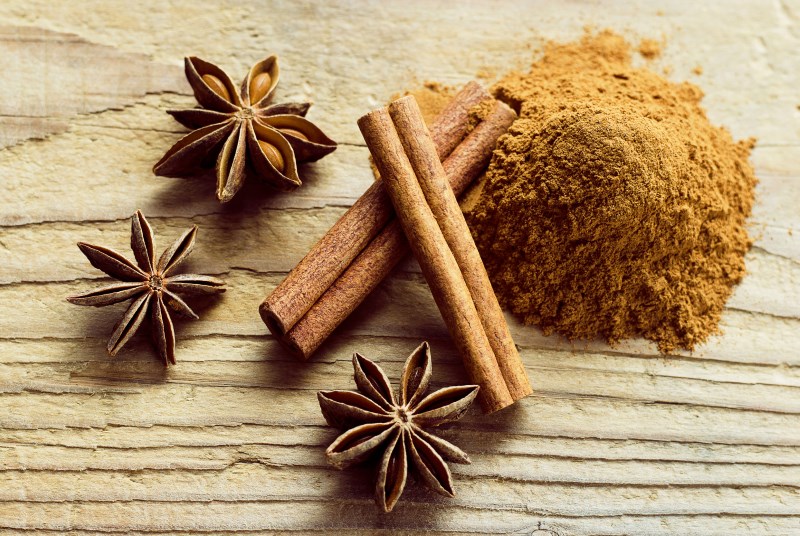
What is Cinnamon
Cinnamon is a spice you need more of in your life if you’re looking to get healthy.
Today, we commonly use cinnamon in both sweet and savory dishes, such as cinnamon rolls, apple pie, and many Indian meals.
Cinnamon is also commonly sprinkled over coffee or used in herbal teas.
It definitely has a place in the modern pantry for cooking and other tasty purposes, but aside from the sweet, yet savory zip it adds to drinks and dishes, cinnamon also has many health benefits when consumed regularly.
Commonly regarded as a ground spice, cinnamon or “cinnamon bark” actually comes from a tree.
Cinnamomum is a genus of the laurel family, with more than 200 species.
The inner bark of these trees is used to make the ground cinnamon spice we know today and can also be used to create aromatic and potent cinnamon oils.
Many different types of cinnamon can be found as well as variations of how to use it, including Vietnamese (Saigon) cinnamon, cinnamon buds, ground cinnamon, and cinnamon sticks, but the most common types used today are cassia (the average cinnamon spice used in the United States) and Ceylon.
Grown in South India and Sri Lanka, Ceylon cinnamon trees are grown for two years without harvesting.
After two years, farmers will prune the trees so that the branches begin shooting off in all different directions.
Then farmers will have two harvesting seasons a year.
Cinnamon trees will be covered to ferment before their bark is stripped to make cinnamon.
Cassia cinnamon is native to Indonesia, China, and Vietnam.
This tree will reach more than ten feet tall and is harvested for its bark, leaves, and buds, all of which are dried and sold. (2)
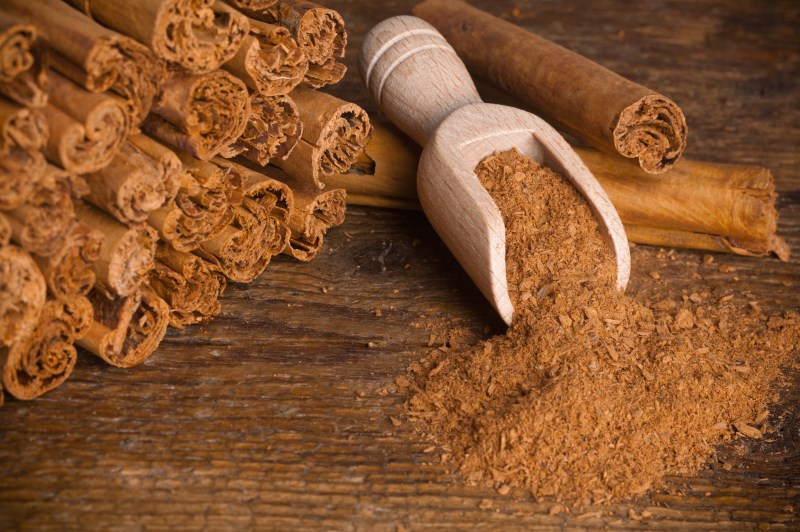
Interesting Facts
Aside from tasting delicious, enhancing food’s natural flavor, and being used for medicinal purposes, cinnamon has been known for thousands of years as being healthy for you.
Here are some fun facts about this popular spice.
- The cinnamon bark can be cultivated so that it grows into a bush instead of a full-grown tree.
- The largest production of cinnamon comes from Sri Lanka.
- Used as a natural cure for many different ailments, cinnamon contains fiber, iron, calcium, manganese, and zinc.
- Cinnamon is perhaps one of the oldest spices. Its origins trace back to ancient Egypt and is even mentioned in the Bible.
- In ancient Egypt, cinnamon was used to embalm bodies.
- This favored spice is used in both savory and sweet dishes.
- Cinnamon is commonly used both in food and for medicinal purposes.
- The leaves on a cinnamon tree are anywhere from three to seven inches long and highly fragrant.
- The health benefits of cinnamon explored in ancient China, even being mentioned in a publication about botanical medicine that dates back to 2,700 B.C.
- Cinnamon is made from grinding down the inner bark of cinnamon trees.
- Roman Emperor Nero actually burned cinnamon at his wife’s funeral as a show of regret for murdering her.
- Due to its antimicrobial properties, cinnamon can actually be used to preserve other foods.
- Cinnamon was one of the first regular products that were traded between Europe and the Near East.
- In the cosmetic world, cinnamon is used for its pleasant fragrance as well as its natural plumping or “swelling” properties on the lips.
- When grown in the wild, cinnamon trees have a lifespan of forty years.

How to Select Cinnamon
When choosing cinnamon at the store or market, you’ll first want to decide which type interests you.
Cassia Cinnamon
Cassia, or Chinese cinnamon, is produced in Indonesia, China, and Vietnam.
This variety is hot and pungent in taste.
It is low in price and brown to reddish-brown in color.
When sold in stick form, it will only fold inward and has an empty cavity in the center.
Cassia cinnamon will be difficult to grind down and also contains high levels of coumarin, which can be harmful or damaging to the liver.
Ceylon Cinnamon
Ceylon, or “Real Cinnamon,” is the sweeter spice variety found in Sri Lanka.
It is light brown with a soft texture and has many folds if bought in stick form.
It is generally more expensive than other cinnamon varieties.
Unlike Cassia cinnamon, Ceylon cinnamon contains a minuscule amount of coumarin that is not harmful when consumed regularly.
Keep these differences in mind when checking your local market for the right cinnamon.
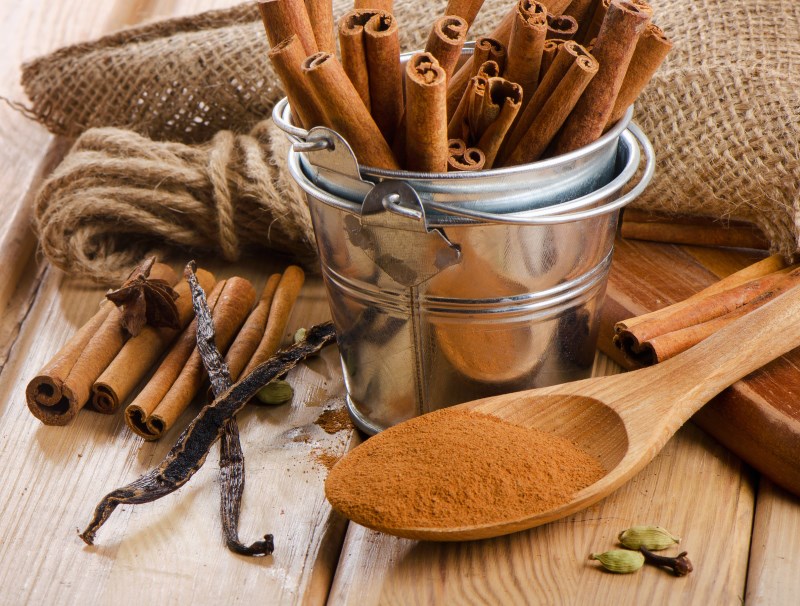
How to Store Cinnamon
Cinnamon can last for years when stored in your pantry, but its potency in both smell and taste will lessen after just a couple of months.
It’s important to properly store your cinnamon so that you can get the most cinnamon benefits and give your product lasting freshness.
Keep your ground cinnamon or cinnamon sticks in a glass container with an air-locked, tight-fitting lid.
Store your cinnamon in a cool, dry space, such as a pantry or cupboard.
Ground cinnamon spices will keep for six months, while cinnamon sticks stored tightly will last for a year before freshness and flavor begin to fade.
Keep your cinnamon away from direct sunlight or heat sources, and be sure to seal your container tightly when not in use.
Tightly sealed cinnamon can also be stored in the refrigerator for optimum freshness and keeping cinnamon benefits for health.
When fresh, cinnamon should have a spicy, sweet aroma.
If it lacks this quality and the taste is no longer significant, it should be thrown out.
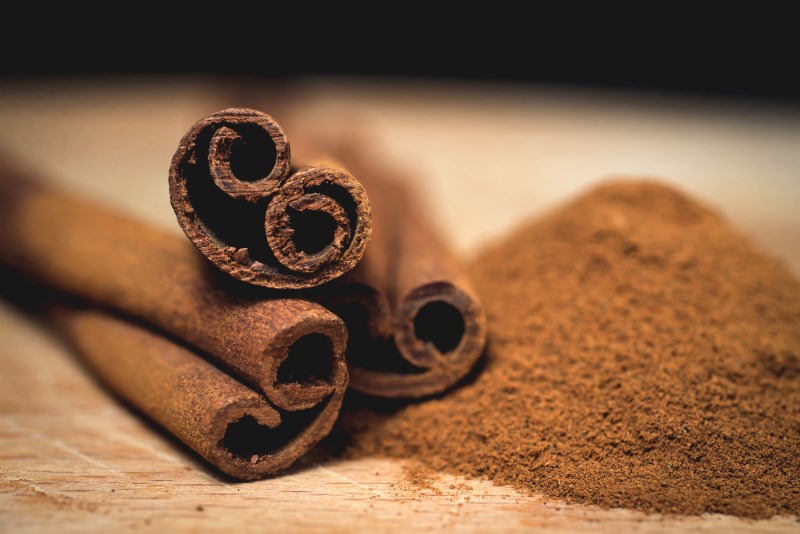
Best Ways to Consume Cinnamon
Since cinnamon comes in so many different variations, it can be taken in many different ways, the health benefits of cinnamon powder are the same as cinnamon sticks have.
Mixed with tea is a primary option, but it is also used topically in the form of cinnamon oil (which can be consumed or used topically) as well as in other cosmetic lotions.
Cinnamon capsules can also be purchased in the vitamin section of your local drugstore.
So, what are the benefits of cinnamon?
Consuming Cinnamon for Diabetes
When used correctly, one important cinnamon benefit is a positive effect on blood sugar.
Also, there’s a medicinal value of cinnamon for those who have a resistance to insulin.
All ingestion of cinnamon for diabetes should be done in moderation — once a day, five days a week at most.
Uses of cinnamon include two great methods for consuming cinnamon for diabetes:
#1 Cinnamon tea is a great way to use cinnamon for diabetes.
Simply use a cinnamon stick or cinnamon powder and mix it into your herbal tea.
Ceylon cinnamon tea is often suggested since it uses cinnamon bark oil, which contains cinnamaldehyde.
#2 Use cinnamon bark oil for diabetes by adding a drop or two to your food or beverage each day.
Be sure to monitor your blood sugar level and cease consumption if you experience any side effects.
Consuming Cinnamon for Dietary Purposes
Many people ingest cinnamon for its flare of spice and vitamin-packed benefits, while others use it strictly in their diet as an appetite suppressant.
Whatever the reason, cinnamon can be incorporated into your daily diet in several convenient ways.
- Sprinkling cinnamon on top of oatmeal, cereal, or toast in the morning.
- Baking homemade cinnamon rolls, which is a particularly delicious way of getting your cinnamon each day.
- Incorporating cinnamon into your dinners and sauces, such as with Indian Butter Chicken or spaghetti sauce.
- Adding a teaspoon of cinnamon to your protein shake or morning smoothie.
- Having a teaspoon of cinnamon or inserting a cinnamon stick into a glass of herbal tea.
- Cinnamon vanilla milk. Move over chocolate milk. There’s a new tasty treat in town. Simply combine three cups of milk with one tsp of vanilla extract and one tsp of cinnamon. Stir or blend until ingredients have combined. Serve chilled.
- Use a sprinkling of cinnamon in your morning coffee.
Precautions
While cinnamon is commonly regarded as a healthy spice and delicious condiment, occasional side effects may occur when taking it.
Although cinnamon is a natural spice, cinnamon allergies can happen.
If you are allergic to cinnamon, it is highly recommended that you refrain from taking it in any form.
Bear in mind that cinnamon reactions can be caused by any food, vitamin, or cosmetics that contain cinnamon as an ingredient.
While there have been extreme cases of allergic reaction, most cases of cinnamon allergies are not serious.
The most common allergic reactions to cinnamon, taken orally or topically, include:
- Hives
- Congestion commonly associated with having a cold
- Itchy eyes
- Nausea
- Red eyes
- Flushed or red skin
- Swelling and inflammation in the skin
- Itchy skin
- Difficulty swallowing
- A runny nose
- Vomiting
- Diarrhea
- Skin reactions
These are the most common reactions to cinnamon products, such as oils, creams, cinnamon bark, cinnamon spice, and cinnamon supplements.
Other cinnamon side effects and conditions include:
- Contact dermatitis
Some people who are allergic to cinnamon display what is called contact dermatitis, which is a symptom that occurs when the cinnamon comes directly into contact with the skin as opposed to being ingested.
The resulting reaction is redness on the skin, rash, hives, or other skin-related inflammations.
- If you are pregnant
Avoid consuming large amounts of cinnamon bark if you are breastfeeding or pregnant.
While there is little known about the potential hazards of doing so, Web MD and other doctors have suggested it is possibly unsafe.
- Do a spot test
Before applying a topical cream or cinnamon oil, always do a spot test first.
Rub a dime-size spot of oil on the skin and massage in a circular motion.
Leave it on for several minutes before wiping off with a soft cloth.
Doing this will help you determine whether or not your skin will be irritated by the oil.
- Dilute cinnamon oils
If applied topically, as with cinnamon oils, it is highly recommended that you dilute the potent oil with water to avoid skin irritation.
- Diabetes and blood sugar
Cinnamon has the potential to lower blood sugar, especially in cases of those who have type 2 diabetes.
Be sure to actively monitor blood sugar levels if you are taking cinnamon bark.
- Avoid inhaling cinnamon oil
Even if you are not allergic, odds are your nasal passages will not thank you for the strong smell.
- Liver problems
Those taking cinnamon supplements will need to keep an eye on their liver, since other ingredients found in these supplements, such as coumarin, may react poorly with the liver and cause issues down the road.
- Cinnamon’s reaction with other medications
If you take any prescription medications, always consult your doctor before using cinnamon supplements, as they could have an adverse reaction with other medications.
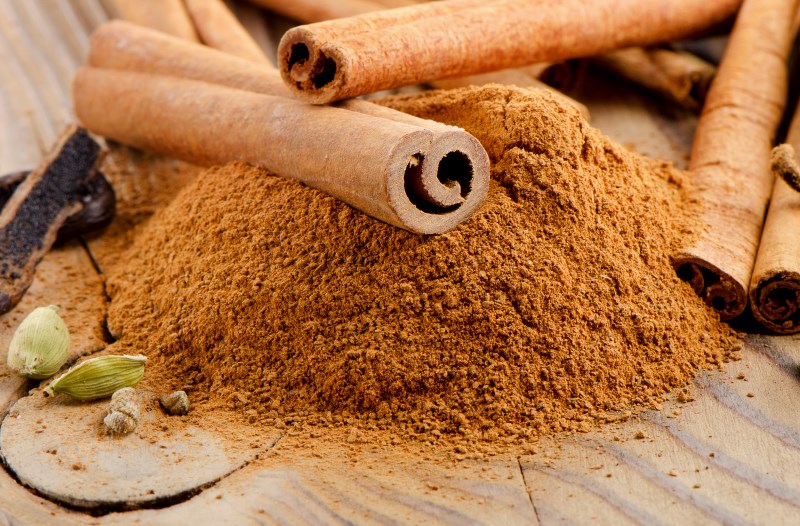
What to Do if You are Allergic to Cinnamon
Although cinnamon allergies are usually mild, that does not mean you should ignore the symptoms altogether.
If you break out after using cinnamon topically or by ingestion, inform your doctor.
You should also stop using cinnamon in your diet.
Your doctor may prescribe nasal spray, antihistamines, or eye drops, as they would combat any other common allergies.
Extreme allergic reactions may have different treatment options, such as hospitalization, bronchodilators, or IV fluid treatments.
Common Misspellings
The word “cinnamon” is used in the English language since the 15th century.
“Cinnamon’s” origin is Greek – kinnámōmon (later kínnamon).
It is worth mentioning that the Greeks borrowed “kinnámōmon” from a Phoenician language and the word is undoubtedly related to Hebrew “qinamon”.
Searching for information about the health benefits of cinnamon, you may come across different spelling variations of the word “cinnamon”.
Here are the most widely spread ones:
- Cinnamin
- Cinnimon
- Cinimon
- Cinnomon
- Cinnemon
- Cinamin
- Cinamom
- Cinnomin
- Cinammon
- Cinamon
Conclusion
In conclusion, whether you’re looking to heal your body or simply keep it healthy, cinnamon is an absolute must-have spice for your pantry.
Many different types of cinnamon are available, and it can be used in many ways on a day-to-day basis for numerous health benefits.
Cinnamon is available at local grocery stores and spice markets in a wide variety of flavors and applications.
The more you know about the health benefits of cinnamon, the more excited you’ll be to find ways of incorporating this natural spice into your daily meals.
FDA Compliance
The information on this website has not been evaluated by the Food & Drug Administration or any other medical body. We do not aim to diagnose, treat, cure or prevent any illness or disease. Information is shared for educational purposes only. You must consult your doctor before acting on any content on this website, especially if you are pregnant, nursing, taking medication, or have a medical condition.
HOW WOULD YOU RATE THIS ARTICLE?
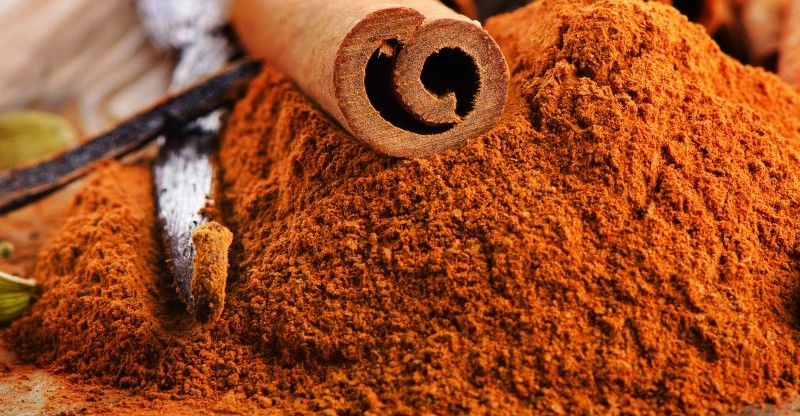






You can’t imagine how much I love cinnamon with my coffee!But could the cinnamon cause allergy if i’m having it every day???!
Hi Laverne! Too much cinnamon can cause allergic reaction. But if you consume little cinnamon, it’s unlikely you’ll get an allergy.
Thanks !!
My pleasure 🙂
I love cinnamon in cake, coffee and beer 😉
Cinnamon makes better literally everything! 🙂
Aloha,
This is a fantastic informative article! Thanks so much for gathering all this info!
with warmest aloha,
Richard
Hello Richard! I’m enormously glad you liked my article :)!
Can I mix cinnamon with turmeric and lemon?
How can cinnamon oil can be used? Is it used in cooking or cosmetics?
How can I use cinnamon for preserving other foods? What foods can be preserved with cinnamon?
Thanks!
Pretty! This has been a really wonderful article.
Thanks for supplying this info.
Thank you for your comment!
Hello! It’s great my blog is useful for you:)
I like sleeping with cinamon powder by my side. I feel it makes me sleep cool. What do you have to say about it?
Cinnamon has always been one of my favorite spices and it’s great to learn about its amazing health benefits
thanks for all info provided, have been adding cinnamon sticks to my tea every morning and I enjoy it a lot
be blessed
Great, i didn’t know this awesome usefulness.
Hello Helen,
Your article is very educative, but can I use Cinnamon for treatment of hepatitis?
This is great. I have tried it and it worked perfectly for me.
I love cinnimon.. I have some in the car and get a cup of coffee and some bannanas.. and sprinkle some powder on the bannanas and i have the bannanas with my coffee… I put a teaspoon in my coffee everyday.. so, coffee and bannans… with cinimon powder everyday LOVE IT ..
Thank you very much for these informations..
Can you plesae clear me that is it beneficial for enlarged prostate .
I will use it against boddy ododur and constipation. Thanks for sharing.
Great research work.I tried one and it was magical.
Please I always get stomach pains when I take cinnamon. Should I stop taking it? Thanks